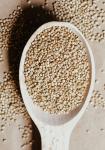 The Reserve Bank said on Friday it would examine data on inflation, which has risen to 8.62 per cent in September, while reviewing the monetary policy next month on whether to hike its lending and borrowing rates to tame the rising prices.
The Reserve Bank said on Friday it would examine data on inflation, which has risen to 8.62 per cent in September, while reviewing the monetary policy next month on whether to hike its lending and borrowing rates to tame the rising prices.
Experts expect the central bank to hike key short-term policy rates by 25 basis points to check inflation.
"We will study the de-segregate inflation data in the monetary policy review next month. Inflation figure would be one of the variables to be looked at during the review. I cannot speculate the stance of monetary policy," RBI Governor D Subbarao told reporters in Chandigarh.
To rein in demand by checking consumer spending, the RBI has raised short term rates five times this year.
The RBI in its mid-quarterly review in September had hiked the short term lending (repo) rate by 25 basis points and borrowing (reverse repo) rate by 50 basis points.
"Inflation remains the dominant concern in macroeconomic management," RBI had said while raising the repo and reverse repo rates to 6 per cent and 5 per cent, respectively.
Economists, however, said that RBI would up the key rates by 25 basis points each on November 2 and then put a pause to the rate hike cycle.
"We expect another 25 bps hike in repo and reverse repo and after that RBI will pause its rate hike cycle. The rate of rise in prices is coming down gradually.
Inflation in prices of manufactured items is easing, even as pressure on food items remain," HDFC Bank chief economist Abheek Barua said.
Driven by higher prices of essential items, World Price Index inflation moved up to 8.62 per cent in September, from 8.51 per cent in August.
This is the second consecutive month in which the overall inflation has stayed in the single digit. It had remained over 10 per cent for five months till July.
"I expect RBI to step in with a 25 basis points hike in both repo and reverse rates next month. Food inflation is still stubborn, even as pressure on prices of cereal and pulses are easing," Crisil chief economist D K Joshi said.
Experts feel the rate hike decision would be guided by the need to contain inflation, as well as 16.37 per cent food inflation in the week ended October 2, as a hike in rates will lead to a rise in the cost of funds for banks and will make loans more expensive.
This, in turn, will reduce consumption.






 © 2025
© 2025